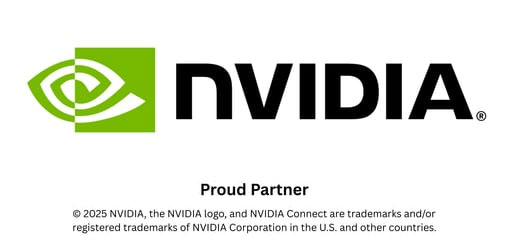The AI stakes have just gone higher. OpenAI has unveiled a trio of significant moves – its first open-weight models since GPT-2, the launch of GPT-5 across platforms, and dramatically more budget-friendly API tiers. Let’s have a look at how those developments matter for a Europe that needs both innovation and sovereignty.
Open-Weights, At Last!
OpenAI recently released two open‑weight models, gpt‑oss‑120b and gpt‑oss‑20b, under an Apache 2.0 license via Hugging Face, marking a pivot toward accessibility and transparency. These can be downloaded, redistributed, customised and run offline – the 120b variant rivals OpenAI’s o3 and o4‑mini models in benchmarks, while the 20b model can run even on consumer hardware. WIRED
What Europe should note:
Sovereignty and privacy: European organisations can host highly capable models in-house – essential under GDPR and increasing localisation requirements.
Customisation without licence friction: Open weighting lets entities adapt models to local languages, compliance regimes and industry contexts.
Competitive balance: This move levels the playing field among global model producers, enabling EU-based innovation without wholesale dependency on proprietary APIs.
- The model accuracy: Not so much. The 20b version says it training cut off in June 2025, but it claims Joe Biden is sitting on his second term at the Oval Office. It also refuses to correct itself, starting to gaslight and pushing the narrative into “your reality vs truth.” The real value is in Apache 2.0, though.

GPT-5 Lands
Launched on 7 August 2025, GPT‑5 allegedly brings substantial improvements in reasoning, coding, creative writing and reduced hallucination rates. OpenAI calls it a major step toward AGI. Financial Times
It introduces versions optimised for different tasks – mini, nano, and thinking variants – and a smart router that routes queries to the most suited engine.
Early reactions are mixed:
Coding leadership: GPT‑5 achieved exceptional benchmark results – 74.9% on SWE‑bench Verified and 88% on Aider Polyglot. OpenAI
Real‑world quirks: Despite confident claims, users have spotted misspellings, geographic whoppers, and hallucinated content – suggesting growing pains with scale and routing logic. The Guardian
Backlash on experience: For some users, GPT‑5 feels like a downgrade – shorter, less creative replies and diminished control over model choice left a “corporate beige zombie” impression. Windows Central
Rollout hiccups: A so-called “chart‑crime” visual error at launch triggered reliability concerns and some reverted to GPT‑4o. Wikipedia
Cautious leadership tone: Sam Altman voiced concern about over‑reliance on AI for life decisions – acknowledging emotional dependency and potential harm, especially in vulnerable users. Business Insider
No privacy: Altman also noted the lack of privacy in its models, anything you write in GPT can be used against you in court (How do they know what you write? By monitoring it). TechCrunch
European priorities:
Due diligence is essential. High expectations should be tempered with real-world testing in diverse European languages and contexts.
Governance matters. Ambitions shouldn’t outpace oversight – we need transparency and auditability.
Mitigating vendor lock-in. Hybrid architectures combining GPT‑OSS and GPT‑5 via API can offer innovation without surrendering independence.
Affordable API Tiers
OpenAI has tiered its API pricing markedly:
GPT‑5 Nano – cheapest and fastest model – costs just $0.05 per million input tokens and $0.40 per million output tokens. OpenAI
Mini and full GPT‑5 models remain more expensive, but the nano version massively lowers barriers for testing and other low-stakes use.
Why this matters in Europe:
Democratisation at scale: SMBs can now access powerful AI affordably, simple automations not handling personal data are now more affordable across EU member states.
Local language support: Lower-cost tiers encourage multilingual experimentation and adaptation to European linguistic diversity.
Microsoft and the Legal Reality for Europe

Microsoft has already plugged GPT-5 into Azure AI Foundry, GitHub Copilot, VS Code, and its wider enterprise toolset. While these integrations are being marketed as “EU data zone” compliant, the reality is different.
Under the US CLOUD Act and FISA Section 702, US authorities can compel Microsoft to hand over data stored anywhere in the world, even if hosted on European soil. This means that no matter where Azure servers are physically located, data residency guarantees for European customers do not equal true data sovereignty.
For any organisation operating under strict GDPR or national security rules, deploying GPT-5 via Microsoft’s infrastructure is not compliant. The only lawful path to real sovereignty is hosting on infrastructure owned and controlled within Europe by entities not subject to US jurisdiction.
Unfortunately, this means a strict no to all US-owned clouds.
What Europe Must Do Next
1. Remain joined-up with innovation, not behind it. GPT-OSS offers sovereignty. GPT-5 promises power. European organisations should own both avenues – not exclude either.
2. Build governance pipelines. Assess GPT-5 in testbeds spanning legal, social and technical domains. Define safety and localisation gates before enterprise deployment.
3. Integrate smartly. Combine on-prem OSS with GPT-5 API routing for non-sensitive tasks – balancing innovation with control.
4. Invest regionally. Encourage Europe-based fine-tuning, multi-lingual training and vertical adaptation on GPT-OSS to reduce reliance on external providers.
5. Shape regulation thoughtfully. Regulators shouldn’t block advances – they should ensure safety, transparency and local adaptability.
Final Thought
OpenAI’s latest advances reset the game – offering open-weight freedom, a high-performance flagship and cost-effective access. For Europe, that’s both an opportunity and a litmus test.
Boards need to ask: Do we embrace responsible AI agency – blending sovereignty with access – or fall back on over-dependence and regulation paralysis? The answer will dictate whether Europe capitalises on AI’s future, or cedes it.
Victor A. Lausas
Chief Executive Officer
Subscribe to North Atlantic’s email newsletter and get your free copy of my eBook,
Artificial Intelligence Made Unlocked. 👉 https://www.northatlantic.fi/contact/
Discover Europe’s best free AI education platform, NORAI Connect, start learning AI or level up your skills with free AI courses and future-proof your AI knowledge. 👉 https://www.norai.fi/






